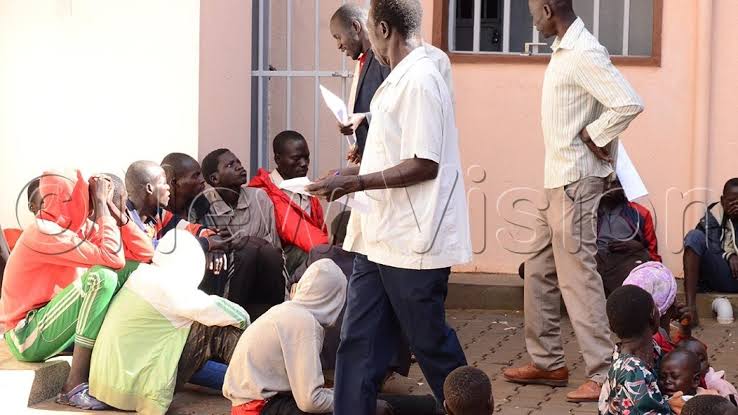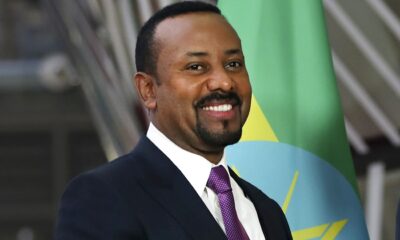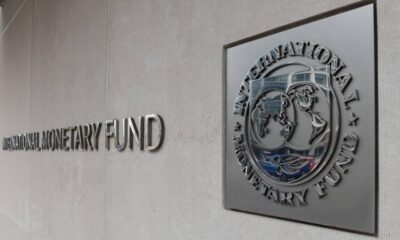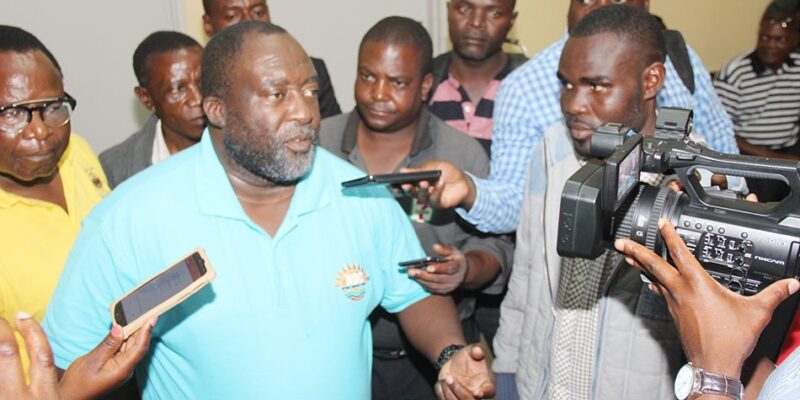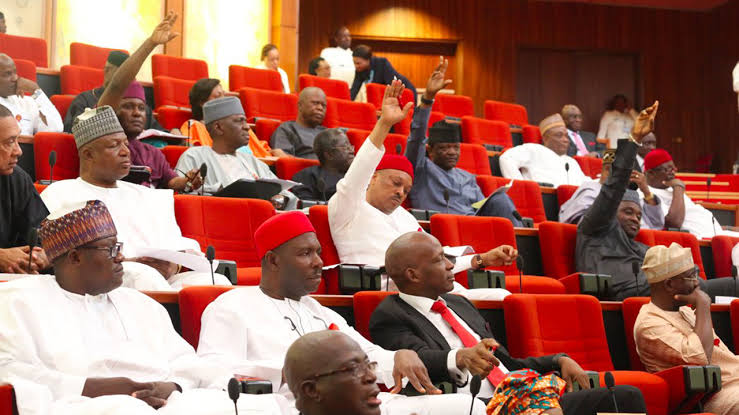The Nigerian Senate has raised the alarm over the influx of terrorists from Mali and Burkina Faso who operate in the name of Lakurawa, into Kebbi, Sokoto, Kaduna and Niger States in the northern parts of the country.
The Upper Chamber, which raised the alarm during plenary on Wednesday, called on the military to set up early warning mechanisms to forestall further incursions by terrorist groups as well as maintain presence and vigilance in the affected communities to halt the activities of the terror group from spreading further across the region.
The resolutions of the Senate were sequel to a motion titled, “Urgent need for the federal government to take stringent measures to stop the infiltration of a group of violent terrorists, known as Lakurawa, from entrenching themselves in some northwest states of Sokoto and Kebbi,” and was sponsored by the senator representing Kebbi North, Senator Yahaya Abdullahi, and co- sponsored by Senators Adamu Aliero, from Kebbi Central, and Garba Musa Maidoki, representing Kebbi South.
While presenting the motion, Senator Abdullahi said:
“The Senate is aware that a group of terrorists from neighbouring Burkina Faso and Mali, known as Lakurawa, has infiltrated the country through the Nigeria-Niger border, at Illela, Tangaza and Silame Local Government Areas of Sokoto and are from there, attacking communities in Augie and Arewa LGAs in Kebbi State.
“Recall that this violent gang of terrorists had raided and dispossessed these communities, prior to the large-scale invasion of Mera, a village in Augie Local Government, on November 8, 2024, killing more than 20 people and fleeing with their livestock, amounting to hundreds of millions of naira.
“Senate is aware that Kebbi State government promptly responded by sending a delegation with relief materials to the affected villages and assistance to the families of the deceased.
“Aware that Senator Yahaya A. Abdullahi (Kebbi North) and Senator Adamu Aliero (Kebbi North Central) and Senator Garba Musa Maidoki (Kebbi South), along with some members of the House of Representatives from Kebbi State, have been to those areas, to commiserate with victims of the attacks on behalf of the National Assembly.
“Aware that if timely, adequate and decisive measures are not taken, this group can spread its reign of terror to other northern parts of the country and beyond.
“Notes the prompt response of the ministry of defence and the armed forces who despatched a well-armed military response squad that was able to dislodge the terrorists and secured the release of herds of cattle and other livestock stolen by the terrorists. These foreigners have invaded the country.
“We need to nip the situation in the bud, they have international connections, heavily armed with very dangerous weapons, the federal government should take the matter very seriously.
‘These terrorists are well armed with highly sophisticated weapons, this is a very serious matter on national security, they control the whole of Northern Mali and now attacking Kebbi, Sokoto, Kaduna, Niger, and others. The time to act is now, we have to take action on how to tame terrorism.”
He said the Senate should revisit past resolutions on terrorism and send them to the Presidency for immediate action.
”I want us to recall what happened in the 8th and 9th Senates. We discussed extensively how we can stem the tide of banditry and terrorism. We made far-reaching recommendations, and we asked the Executive arm of government to implement those resolutions.
“It is still relevant for us to insist that those resolutions should be implemented, if we do so, it will reduce the incidences of banditry and insurgency in the country. We can reduce it to the barest minimum.”

 Metro1 day ago
Metro1 day ago
 Sports1 day ago
Sports1 day ago
 Culture1 day ago
Culture1 day ago
 Politics1 day ago
Politics1 day ago
